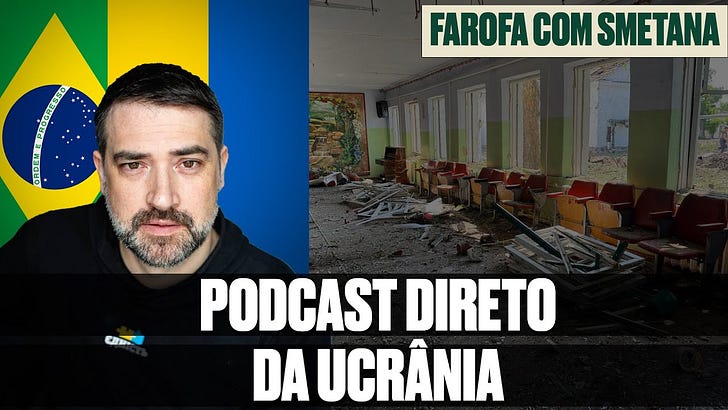When I watch the videos of interviews about Ukraine I’m doing in Portuguese these days for UATV in Kyiv, I hear every mistake—or at least the ones I’m competent enough to recognize. A stress on the wrong syllable. A slightly incorrect word form—most recently, I said “central” when I should have said “centro” (center). All the little hesitations as I search for the right word. And my accent. That accent. Urgh. Stupid American.
But I try to take a long-term view that feels a bit “Marxist”—this is a phase, a necessary one, as part of an attempt to build something different, something more useful, and hopefully less focused on me.
I had many doubts about even taking the job, but Vicente Ferraro, a Brazilian political scientist with the Getúlio Vargas Foundation, persuaded me with an argument that went something like, “It would be good to have someone like you in this role, rather than someone else.” If he, a Brazilian academic who has lived in Russia and Ukraine and done work I deeply admire, thought maybe I could be useful—or at least better than some hypothetical alternative—then I figured I should give it a shot. Vicente ended up being my first guest. You can see the conversation, which focused on his research on Ukrainian school teachers under Russian occupation, here.
And the truth is that I’m also just an immigrant in a tough job market, trying to get by. I wasn’t offered the job in English; I was offered it in Portuguese. So I’ll try my best and get better as I go. The shift isn’t just linguistic, either—this is also my first time in front of the camera, and regularly editing videos. In that sense, it’s like an ADHD dream job—I get to learn a lot of new things quickly, under pressure, in a “war zone.” Fun.
My intention is to approach this not just as a journalist but as an organizer and convener, a sort of cultural activist, with the goal of creating a unique community and platform for a hodgepodge of people in the Ukraine-Brazil sphere. I’ll just be another connector and participant—this random American who introduces people and helps organize the party.
It helps tremendously that we have Debora Sedor, a Brazilian-Ukrainian activist and journalism student, on board to help run our community Instagram page, Farofa com Smetana. She has the right amount of activist zeal, tech know-how, and deep roots in the Ukrainian diaspora in Brazil. Dina Chetvertak, a truly bicultural “Brazilified” Ukrainian who is a colleague at UATV and mentioned in the last newsletter, will also be important. We have a WhatsApp group going for friends and collaborators.
Whatever the language, I do find joy and meaning in connecting people through conversations and stories. I hope that can happen, and that maybe some of you will be along for the ride. This newsletter is where I’ll write about it in English—a language I know well but one where, as history has shown, I’m also quite capable of embarrassing myself.



